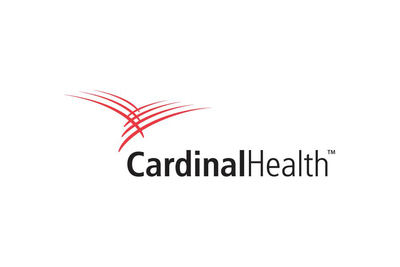 |
Press Releases
DUBLIN, Ohio, June 16, 2020 /PRNewswire/ -- Faced with a decreasing number of healthcare providers and growing patient volume as the Baby Boomer generation ages, surveyed rheumatologists said they plan to hire more advanced practice providers (APPs), expand patient care with telemedicine and invest in technology to manage the increased demand for services. These findings were released today in the first edition of Rheumatology Insights, a research-based report published by Cardinal Health Specialty Solutions. Based on surveys with more than 100 U.S. rheumatologists, Rheumatology Insights focuses on key trends impacting one of the fastest-growing areas of specialty medicine.
Hiring more APPs (57%) was the most frequently cited solution for managing growing patient demand, but adoption of telemedicine (34%) and investments in other technology (34%) were also commonly cited as strategies to address the shortage of providers and create more time for patient care. Participating rheumatologists also indicated that increasing administrative duties are the biggest challenge facing their practice.
The research was conducted just before the onset of the COVID-19 pandemic in the U.S., indicating that rheumatologists were already considering telemedicine services before the technology was quickly adopted and became more mainstream in recent months.
The survey also explored rheumatologists' attitudes about value-based care and biosimilars. Key findings include:
- Rheumatologists are familiar and comfortable with biosimilars, but concerned about the economics of prescribing them: Most rheumatologists are very or somewhat comfortable (90%) prescribing biosimilars; however, a majority of participants (65%) strongly agree or agree that they are unlikely to switch to biosimilars until the economics are more favorable and there is greater adoption among payers.
- Rheumatologists report positive financial performance under MIPS, but remain skeptical about the broader goals of value-based care: Most participating rheumatologists said their practices are participating in MIPS (Merit-based Incentive Payment System), with nine in 10 saying financial performance has stayed the same or improved, compared to fee for service; however, two-thirds of participating rheumatologists said they lack confidence that MIPS will help improve patient outcomes and total cost of care.
"The growth of the rheumatology field is resulting in exciting advances in rheumatology care as well as new challenges for providers, which prompted us to launch this research to better understand how rheumatologists are responding to these trends," said Dan Duran, Senior Vice President and General Manager of Provider Solutions for Cardinal Health Specialty Solutions. "We hope that deeper insights into how rheumatologists are addressing these important issues will help spark meaningful discussions about how to best support both providers and patients."
Rheumatology Insights is a companion publication with Oncology Insights, a series of research reports exploring the views of oncologists on a wide range of subjects.
About the Survey
The findings in Rheumatology Insights are based on web-based surveys conducted in February and March 2020. More than 100 rheumatologists from a mix of community- and hospital-based practices participated in the research. The report also includes viewpoints from Gordon Lam, MD, FACR, Medical Director, Clinical and Translational Research at NorthEast Rheumatology, Atrium Health, and Amy Valley, PharmD, Vice President, Clinical Strategy and Technology Solutions, GPO, Cardinal Health Specialty Solutions.
About Cardinal Health
Cardinal Health, Inc. is a global, integrated healthcare services and products company, providing customized solutions for hospitals, healthcare systems, pharmacies, ambulatory surgery centers, clinical laboratories and physician offices worldwide. The company enhances supply chain efficiency for clinically proven medical products, pharmaceuticals and cost-effective solutions. To combat prescription drug misuse, the Cardinal Health Foundation and its education partners created Generation Rx, a national drug prevention education and awareness program. The Foundation actively supports an array of other solutions, including efforts to reduce opioid prescribing, promote drug take back and safe disposal and expand collaborative community work.
Cardinal Health is backed by nearly 100 years of experience with operations in nearly 46 countries. For more information, visit cardinalhealth.com. Follow us on Twitter, Facebook and LinkedIn.
Contacts
Media: to request a copy of the report, please contact Marcia Frederick, marcia.frederick@cardinalhealth.com and (614) 757-9968; Investors: Kevin Moran, kevin.moran@cardinalhealth.com and (614) 757-7942.
SOURCE Cardinal Health


